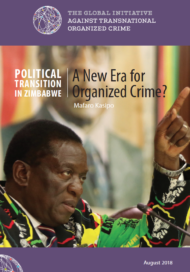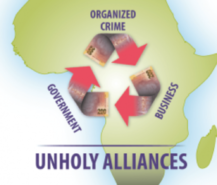Posted on 17 Aug 2018
This policy brief constitutes a first step towards developing more comprehensive assessments that will broaden our understanding of organized crime and illicit markets in Zimbabwe.
It analyzes the development of illicit economies during the three periods of political transition that occurred in Zimbabwe since the country attained independence in 1980, and looks ahead to the current phase of transition under its new president, Emmerson Mnangagwa, whose young administration was cemented by victory for his party at the polls on 30 July 2018.
The brief outlines the relationship between Zimbabwe’s political transitions and its illicit economies, in particular the central role played by the state in controlling, shaping and benefiting from organized crime. Certain forms of state-sponsored illicit activity have been prevalent during specific phases in Zimbabwe’s political trajectory, but are not exclusive to those transitions.
In Zimbabwean politics, illicit economies have been a mainstay of the patronage system that ensured that the ruling party, ZANU–PF (Zimbabwe African National Union – Patriotic Front), remained in power for 37 years under Robert Mugabe. Arguably, therefore, there is a possibility that illicit economies will continue to pose a threat to the implementation of a legitimate constitutional democracy in the post-Mugabe era.




